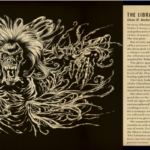Candide
 Writer: Voltaire
Writer: Voltaire
Publisher: Penguin Classics
Year Published: 1759
Pages: 155 pages
Candide (1759) is a work of international literary importance. Originally written in French at a time where copyright was not a thing, anonymously, Voltaire published it simultaneously in different countries to protect the book from piracy. The English translation is the main reason why we now know the genius behind the book. The French writer Voltaire was recognized as the writer.
The story is about optimism as a philosophy, shrouded in satire and pure naivety. I love this book because it is hilarious, morbid, and somewhat true about human nature. At the same time, it questions the idea that we live the best possible world and universe. The book asks: How could all these bad things happen if God created the perfect world? Basically, it is an existential crisis in a book.
So, Millennial and Gen Z anxiety is not a new thing.
We just worry about living in a dying world/system instead of questioning God and the perfect world. However, the meme “this is the worst timeline” does play into the anxiety of what kind of world we live in.
Since this is a part of the World Lit reviews series where I express my opinion on literary pieces and connect it to pop-culture and the contemporary, I want to highlight why Candide is important for us in a contemporary sense. Besides its ranking as one of the most important pieces of literature, the genius, in my opinion, is that Voltaire managed to write a short but fulfilling book that represents the absurdism of constantly viewing the glass as half-full. Plus, all the themes in Candide are integrated into a lot of our pop culture and contemporary narratives. For example, satire is basically a literary term for sarcasm that extends throughout a story.
I love the absurdity of absolute optimism and the ability to be candid about one’s thought process and naivety.
It shows how life isn’t simple. Even if one views life through rose-tinted glasses of optimism, there are still horrors that one hears and experiences that we shouldn’t dismiss in favor of the silver lining. Moreover, the story is shrouded in satire and dark humor. It helps enhance the narrative’s message without being preachy. In a way, the book as a whole reminds me of the movie Vice by Adam McKay and/or the BBC show The Thick of It with Peter Capaldi (12th Doctor from Doctor Who).
Like a trope we see in many stories, the main character has zero self-awareness. He reminded me, in one way or another, of Jason Mendoza or Janet from The Good Place and can be described as good-hearted but hopelessly naïve. He reacts to horrors by seeing the beauty in it in his attempt to rationalize his belief that he lives in the best possible world.
The best examples are:
*Trigger warning: Sexual Assault and Slavery*
1- “A person of honour may be raped once, but her virtue emerges all the stronger for it.” (p.19)
Here Candide, the protagonist, is describing his optimistic conclusion of his loved one’s pain and rape. Despite her abuse, his concern lays with her honor. Of course, his concern shows the patriarchal obsession with purity and ignores how this is a violation of women’s bodies. Keeping in mind that Voltaire is writing a satire, the sentence could be understood as an absurd comment that ignores the very fact that, even if we are in the best possible universe, we still experience some of the most horrendous things.
Being optimistic does not mean that you should dismiss the reality in favor of focusing on trivial things like virtue. It should mean being strong and hoping for a better future without horror.
2- “When we work at the sugar-canes, and the mill snatches hold of a finger, they cut off the hand; and when we attempt to run away, they cut off the leg; both cases have happened to me. This is the price at which you eat sugar in Europe.” (p.51-52)
In this paragraph, a slave is describing his pain, but all Candide notices is: despite the pain and indignities the man has the experience, his work brings joy to the world. He does not deny the slave’s pain but focuses on the benefit the pain has brought to the slave and the world. He comically ignores the realities of the story and pulls on the positive: sugar.
This attitude reminds me of some of the themes invoked in shows like Dear White People or X-Men. The oppressor expresses the oppressed should view the benefit of their oppression. This attitude ignores the pain and suffering in order to highlight the good their work produced. Still, the experience is jarring because a book from the 1700s still reflects the same attitude experienced today.
*End of Trigger Warning*
Forgetting to actually view reality as a mixed bag of beauty and hope as well as ugliness and pain, people end up on the absurd spectrum of pessimism or optimism. Everything should be a balancing act, including our world view. Mantis, from the Guardians of the Galaxy, is a great example of how someone can experience some of the most horrifying things and still be optimistic. Yet, her performance is still more nuanced than Candide is here.
Looking beyond the insanity of the gems mentioned.
The main character, Candide, is an overly optimistic character who hears some of the most horrifying experiences and still maintains optimism as a way of life. Also, as his name suggests, he is actually candid about his attitude and his absurd point of view.
For example, when another character is drowning, Candide expresses his belief that this tragedy must happen. Instead of helping, Candide lets the person drown with the understanding that is inevitable because it is the best possible world. Therefore, in his optimism, he does not realize some of the tragedies he is experiencing.
The satirical experience is funny. The narrative is also a tragic failure of philosophy. The former would push people to laughter and the latter might make them weep.
I chose to laugh at the absurdity of complete optimism.
Mostly, the story and its main character reminded me of the naivete of the men from the Big Bang Theory. The characters are an amalgamation of misunderstanding their backgrounds and their nerdiness. Although they do represent different aspects of different nerds, they end up portraying a singular entity. Even Sheldon’s inability to understand sarcasm is similar to Candide’s inability to understand the nuances of living in this world.
The biggest difference between Candide and Big Bang Theory is that the former is satire. Candide knows that its main character is an exaggeration representing a philosophy. The readers should be able to recognize that as well. However, many people don’t realize that the sometimes male-dominated portrayal of nerds forgets the nuances of culture. Although the Big Bang Theory is a comedy and a satire of how people view nerds, it managed to take its characters seriously. By doing so, the characters became the canon understanding of nerd culture.
Despite the tragedy of ignorance, the fun part of Candide as a book is that the message is clear and the narrative is short. We don’t need a long Dickensian story or 50 years of Batman history to understand the point of this satire. Whether the reader laughs or weeps over the characters and their stories, they should be able to acknowledge the sheer amazement of creating a short story that is so effective. It is one of the treasures of world literature.





One thought on “[WORLD LITERATURE] CANDIDE & THE BEST POSSIBLE WORLD”